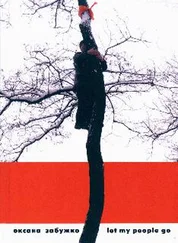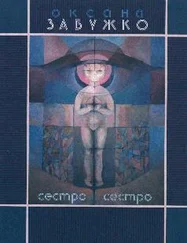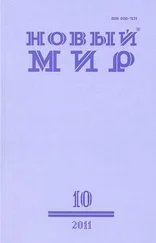Оксана Забужко - Fieldwork in Ukrainian Sex
Здесь есть возможность читать онлайн «Оксана Забужко - Fieldwork in Ukrainian Sex» весь текст электронной книги совершенно бесплатно (целиком полную версию без сокращений). В некоторых случаях можно слушать аудио, скачать через торрент в формате fb2 и присутствует краткое содержание. Город: Las Vegas, Год выпуска: 2011, ISBN: 2011, Издательство: AmazonCrossing, Жанр: Современная проза, на английском языке. Описание произведения, (предисловие) а так же отзывы посетителей доступны на портале библиотеки ЛибКат.
- Название:Fieldwork in Ukrainian Sex
- Автор:
- Издательство:AmazonCrossing
- Жанр:
- Год:2011
- Город:Las Vegas
- ISBN:978-1-61109-008-6
- Рейтинг книги:5 / 5. Голосов: 1
-
Избранное:Добавить в избранное
- Отзывы:
-
Ваша оценка:
- 100
- 1
- 2
- 3
- 4
- 5
Fieldwork in Ukrainian Sex: краткое содержание, описание и аннотация
Предлагаем к чтению аннотацию, описание, краткое содержание или предисловие (зависит от того, что написал сам автор книги «Fieldwork in Ukrainian Sex»). Если вы не нашли необходимую информацию о книге — напишите в комментариях, мы постараемся отыскать её.
Fieldwork in Ukrainian Sex — читать онлайн бесплатно полную книгу (весь текст) целиком
Ниже представлен текст книги, разбитый по страницам. Система сохранения места последней прочитанной страницы, позволяет с удобством читать онлайн бесплатно книгу «Fieldwork in Ukrainian Sex», без необходимости каждый раз заново искать на чём Вы остановились. Поставьте закладку, и сможете в любой момент перейти на страницу, на которой закончили чтение.
Интервал:
Закладка:
You’re a woman. And that’s your limit.
Your moon sleeps like a silver fish lure.
Like spices off the edge of a knife
Dependency sprinkled into your blood
—so she murmured to herself during those frightening winter months, frightening in a different way from these-here autumn months: the middle of January, February, March—no news and no way of finding anything out between Cambridge—and a small Ukrainian provincial town, a studio heated by firewood in the attic of an abandoned house without an address or telephone, without a toilet or hot water, with only a bare lightbulb strung with a cord from the ceiling, with a stick of sausage and a jar of instant coffee on a low table greased with paint, would you like a sandwich? oh, and I’ve got a tomato here, too, would you like some? My God, the man lives like a stray dog, stays up until six in the morning checking out the window on that fancy automobile of his (sans garage) from behind the easel, at twenty-five or thirty you can still handle that kind of life, driven by sheer animal energy—but at forty! Meanwhile back at the Cambridge apartment, crisscrossed God knows how many times from one end to the other by senseless pacing—from the main door through the bedroom to the kitchen (the work that she purportedly came to the States to do collapsed like a crudely assembled house of cards)—something incomprehensible was happening with the phone: time after time she was awakened at dawn by random calls, she’d jump up and rush for the receiver: “Hello!”—somewhere in the distance on the voiceless line a wind howled and an ocean roared, for a few seconds the uninhabited, unpopulated space over the northern hemisphere announced itself as if in fact “someone was crying out her name at night as though from a torture chamber,” and the cries did him no good, after which the mute signal would cease: the eyes of the buttons on the receiver lit up with a green, underwater glitter and from its mouth bubbled up a soulless dial tone—ah, you both had enough will to screw up all the phone lines over the Atlantic, that fierce, hungry force stormed out from his paintings and from your poems, you recognized his at once as soon as you ended up in his studio, put on your thick glasses, and stood before his canvases, and likewise he must have recognized yours—yours, which during those winter months was so unexpectedly and totally knocked off its newly discovered axis (because you were a woman, and a woman, damn it, is a climbing plant that without a vertical support, even if it is imagined—without a love with a concrete living face to it—falls to the ground and wilts, losing all inspiration for upward momentum: every poem was a delightful bastard baby of one prince or another with a bright star on his forehead, the star, of course, inevitably went out, the poem remained)—abandoned on its own, that force tore you to bits from within, fiercely scratching at the walls of your being and bursting out in desperate freefall—
And suddenly again I wanted to scream
Howl at the lamp, claw at the
Wallpaper—from the reality of loss
From knowing there’s no purpose to waiting for you
—until one March day your whole insides were scalded by a frightening thought: that he’s dead, that he just “hit the wall” the way he wanted to (he confessed this to her practically at the beginning—smiling a crooked smile as he hit the gas, racing the car like a plane on the runway, on a country road in the middle of the night, and the wet streetlights in the fine-needled silvery frames, and the black olive flash of the approaching puddles—everything merged, rushed forward in a race against itself, taking your breath away, one hundred, one twenty, one forty, one… one hundred and sixty?— you’re not afraid? don’t you get the desire to—hit the wall? —no, I’m not afraid, I never really experienced real fear and truthfully, I don’t feel it even now—strange, incomprehensible actually, especially if you take into account my whole, damn it to hell, slave-gang life, no wonder it began with a clinical death at birth, Mother even recalled a piece of feces hanging from my bottom, and the tiny body had already turned blue: the poor soul poked its head out into the world and lost its nerve—Hey, no way, let me go back!—but thanks to some kind folks it was revived, quite quickly really, no need to snivel, there are things scarier than death, I know them, it’s just that that fear—seductive and dark, the bewitching, intoxicating excitement of perdition that lives inside him, and I’ve discerned it in others, too—that I don’t have, period, that’s why he would look at me with that spark of unconcealed excitement in his eye, even when it was all over: “ You’re a brave woman! ”—and that “wall” jumped past me then without scaring me)—but this thought—that he died, that those mysterious phone calls really were from him: from “the other side,” and that means then that her love did not protect him, that she herself, she herself, narcissistic egotistical bitch with her stupid pride, her cheap pomp, her empty strutting had pushed him toward that “wall”—a princess, no less: oh, so that’s how it is? Fine, then I’m off—America, as everyone knows, is “the land of opportunities,” half of Europe, and not just our godforsaken part but the purest, from Britain to Italy, is dying to get over there, money, career (“Music, women, champagne…” he had ironically echoed then), and what is there in Ukraine, Ukraine is Chronos chomping away at his children, tiny fingers and toes, I’m supposed to sit and wait for what, to suck a frog’s tit, or rather that of a menopausal diaspora gramps—the Antonovych prize? Oh my God, what the fuck is all that to me if he’s dead, what, what, what has happened to him?!—the thought was so unbearable that jumping out to the back porch and raising her face to the mutable, rapidly darkening Cambridge sky that was thickening into a cloudy gouache, opening her lungs, sticky from motionless sitting and cigarette smoke, to catch the barely felt ocean breeze, she started to pray—yes, the way she had only prayed twice before in her life, once for her father, who was spending his last days lying in a hospital after the by-then-unnecessary operation, convulsing for hours from the metasthasis-induced stabs of pain (they had not yet put him on the narcotics)—for God to send him a speedy end, and then a second time, embarrasing to recall—for independence, then, on the twenty-fourth of August 1991, when everything was decided in hours, as generally happens in the lives of people and nations: Lord, she begged, trembling—help—not for our sakes for we are unworthy, but for all those who have died before us in this cause, of whom there is no count—and both prayers were heard, prayers like that always reach their addressee; and here now she was begging: Lord, please make him be alive!—he can forget me, he can return to his wife, he can betray me with whomever he wishes, I don’t have to have him for my husband, and I don’t need anything at all from him, and if it is your will, Lord, I will love another, I’ll have children with another, just—O Lord, let him be alive. And healthy. And happy. Only that, Lord. Only that.
Well, “healthy and happy”—that would be kind of pushing it, sweetness, because not even God can force somebody to be happy, so the final version of your desperate telegram had to have been accepted without those two words—it’s not like God is going to take orders from every fool! (And I wonder, how do they run this business up there—is there an angel-secretary selecting these earthly messages as they come in, retrieving the sincere ones from the stream, the hot and the heavy, and calmly dropping the incalculable masses of empty words into a black hole?—poems work pretty much the same way: you’re disgusted as soon as you feel the empty sort coming out, you drop the poem without finishing.) And there was one other point where you lied— “he can forget me,” you babbled half-consciously, knowing firmly all the while that never will he forget you, not now, not for as long as he lives: pinching a cigarette butt between finger and thumb and flicking it backwards so that it lit up an arc through the air: “ And have you considered how long it’s going to take me to get over you? Huh? ” he hissed, barely holding himself back from hurling her after the cigarette butt (“ Keep in mind, the flesh is weak, I could hack you to bits before I know it ,” he had once confessed, and your lightbulb went on: watch this, watch this! he’s not lying, this is the truth!—and, with an instantly switched on impersonal interest—invisible wires hummed, droned, nimbly transmitting information—you squeezed it out of him that time, despite his iron-clad resistance to all kinds of cuddly, mumbly, purring, come-on-tell-me boobie interrogations—a taut, point-form account of how, a long time ago, when he was decorating a church together with a “ fucker who was really getting to me ,” he got into a state where he was chasing the fellow around the grounds axe-in-hand—really, around the church, you wondered, somehow imagining that this must have taken place in the dead of night, because there is nothing more frightening than a church at night with a full moon reflected in the dark windows high above—and it’s since then that he’s always been on guard, ready to run at the first sign of that particular mood coming on— I see , you hm-ed, interesting , although the only thing interesting about it was the total absence of fear on your part, dope—it’s as if it were all being told to you through a window in the visiting room of a prison or an insane asylum: you hear it out, and then you leave, and behind you the leaden doors screak violently as they close shut, as the dry clicking of the key turning in the lock showers your back, injecting itself under your skin). How long will it take me to get over you, how long for you to get over me, “How much longer are we to walk thus, Father?” asked the wife of the defrocked Avvakum trudging behind him, outcast and banished, across the endless plain, and sitting down on a hillock, exhausted by the pointlessness of the trip, she heard in reply: “Until death, Mother.” Eastern fatalism, oh yes—the Russians have it; we’re in worse shape, we, actually, are neither here nor there, Europe has managed to infect us with the raving fever of individual desire, faith in our personal “Yes I can!”—however, we never developed a foundation for such faith, those structures that might support that “I can!” and thus have tussled about for ages at the bottom of history—our Ukrainian “I can!” helpless and alone. Amen.
Читать дальшеИнтервал:
Закладка:
Похожие книги на «Fieldwork in Ukrainian Sex»
Представляем Вашему вниманию похожие книги на «Fieldwork in Ukrainian Sex» списком для выбора. Мы отобрали схожую по названию и смыслу литературу в надежде предоставить читателям больше вариантов отыскать новые, интересные, ещё непрочитанные произведения.
Обсуждение, отзывы о книге «Fieldwork in Ukrainian Sex» и просто собственные мнения читателей. Оставьте ваши комментарии, напишите, что Вы думаете о произведении, его смысле или главных героях. Укажите что конкретно понравилось, а что нет, и почему Вы так считаете.




![Оксана Забужко - Тут могла б бути ваша реклама [збірник]](/books/29264/oksana-zabuzhko-tut-mogla-b-buti-vasha-reklama-zbІr-thumb.webp)

![Оксана Забужко - З мапи книг і людей [Збірка есеїстики]](/books/203319/oksana-zabuzhko-z-mapi-knig-І-lyudej-zbІrka-eseЇsti-thumb.webp)


